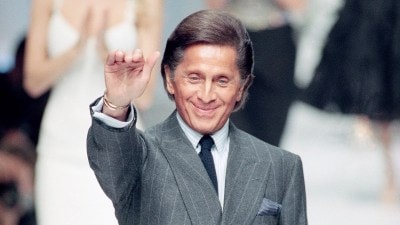Disquiet on the Eastern Front
8226; October 14: Three injured as suspected ULFA men explode bomb at a marketplace near state secretariat, Dispur. 8226; October 18: Five...

8226; October 14: Three injured as suspected ULFA men explode bomb at a marketplace near state secretariat, Dispur.
8226; October 18: Five die as unidentified militants hurl bombs at two separate Durga puja pandals in Bongaigaon.
8226; October 26: National Democratic Front of Bodoland militants gun down 22 non-tribals at Dadgiri on the Indo-Bhutan border in Kokrajhar district. Five policemen sustain injuries as rebels ambush vehicle on way to Dadgiri.
8226; October 27: ULFA lobs a mortar into the high-security capital complex at Dispur, Guwahati. No casualty.
8226; October 29: Tea garden manager abducted by suspected NSCN militants from a Jorhat tea estate.
8226; October 30: NDFB abduct government official at Sorbhog in Barpeta district.
8226; October 30: Two ULFA militants killed in encounter within half a km of the state capital complex at Dispur in broad daylight. One commando, one civilian injured.
THE one question on everyone8217;s lips in the state: Is the Assam situation beginning to get out of hand again? While Chief Minister Tarun Gogoi has admitted 8216;8216;some8217;8217; security lapses led to the recent spate of violence, the Centre on Wednesday rushed Surendra Kumar, joint secretary in the ministry of home affairs, to Guwahati to take stock of the situation.
The Assam government, on its part, has requested the Centre to deploy the Border Security Force BSF along the Indo-Bhutan border to bar the passage of ULFA and NDFB militants. Both groups have major hideouts inside the dense jungles of Bhutan, with which India has an unguarded border.
8216;8216;We need more companies of central forces to deal with the insurgents who cannot be tackled efficiently by the ill-equipped state police on its own,8217;8217; Gogoi said, adding that the Centre had recently assessed Assam to need at least 180 companies of Central forces. The state currently has 121 companies of Central forces, of which 10 are deployed on the Assam-Meghalaya border.
Elsewhere, though, Gogoi tried to put up a brave front, maintaining that militants were striking 8216;8216;here and there8217;8217; because they had lost the support of the people. 8216;8216;They are now frustrated, and therefore targeting innocent people,8217;8217; he said. 8216;8216;They will never succeed in their mission.8217;8217;
As late as Tuesday, the chief minister told a seminar organised by the Confederation of Indian Industries, 8216;8216;Incidents like the mortar attack on Dispur are happening all over the world. Even after the incident, the people did not panic, and went about their business.8217;8217; There was nothing much to worry about, he said, inviting outside investors to set up shop in the north-east.
Incidentally, last year, ULFA armed wing chief Paresh Barua had announced that they would give Gogoi8217;s Congress government a year, after which they would not spare them. The government completes one-and-a-half years in two weeks.
In a recent issue of its mouthpiece Freedom, the ULFA has called for a plebiscite to decide whether the people of Assam want to secede or remain within the Indian Union. When asked to comment on this, Gogoi evaded a direct reply, only reiterating the government line that the ULFA should come forward for unconditional peace talks.
Opposition parties, in the meantime, have seized the opportunity to take potshots at the government. While the Asom Gana Parishad has called for Gogoi8217;s resignation, state BJP chief Rajen Gohain has demanded immediate imposition of President8217;s rule.
But the ULFA 8212; and the consequent political criticism 8212; is only half of Gogoi8217;s problems. The situation is deteriorating on the Bodo front too, especially with the outlawed NDFB striking regularly. In every one of their strikes 8212; from the January incidents, in which 13 and 17 people were killed respectively in Bongaigaon and Darrang, to the Dadgiri massacre 8212; the victims have been non-tribals, particularly Bihari and Bengali settlers.
The NDFB8217;s ire is reportedly due to the government8217;s apparent preference for the other Bodo faction, the Bodoland Liberation Tigers BLT, so far as peace talks are concerned. While the BLT has been negotiating for a Bodoland Territorial Council BTC under the amended provisions of the Sixth Schedule of the Constitution, the NDFB wants a sovereign Bodo state carved out of districts on the north bank of the Brahmaputra.
The BLT peace talks, though, have been in an impasse for two months now, with the state government refusing to add 93 villages to the 3,070 already included in the proposed territorial council.
- 01
- 02
- 03
- 04
- 05































